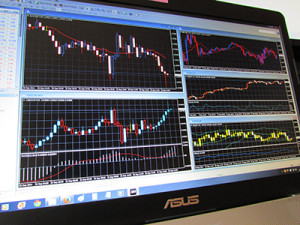Understand How Effective Meetings Can Enable Improved Plant Performance
 Nothing is worse than being in a meeting that completely wastes your time. Hopefully those meetings have been eliminated as part of the steps to making you, the maintenance professional, more effective. For the meetings that you could not eliminate, the meetings need to be effective, reducing wasted time and delivering benefits to the business.
Nothing is worse than being in a meeting that completely wastes your time. Hopefully those meetings have been eliminated as part of the steps to making you, the maintenance professional, more effective. For the meetings that you could not eliminate, the meetings need to be effective, reducing wasted time and delivering benefits to the business.
To make meetings effective, the meetings should follow the 3 phases of effective meetings. The 3 phases ensure that meetings are effective, efficient and everyone knows what they are there to do. Lastly, it ensures that the any actions coming out of the meeting are addressed.
Phase One: Preparation
Arguably one of the most important phases of the meetings. Whether you are the meeting chair or an attendee, the preparation is absolutely critical. If you are the chair make sure there is an agenda identifying all inputs, outputs, discussion points, location and start & end times. Be sure to share the agenda with the meeting attendees at least 24 hours ahead of time. Being the chair, arrive a few minutes early and setup the meeting room.
If you are an attendee of the meeting, make sure to review the agenda ahead of time and have all of your information ready for the meeting. When everyone shows up prepared the meeting will progress quicker and deliver results.
Regardless of the role you play, effective meetings have effective information. This means that information is used during the meeting. The information has pertinent facts and resources which are relevant to the purpose of the meeting. And the information is available and ready before the start of the meeting.
Phase Two: Facilitation
Have the meeting start on time, and it must start on time. Regardless if everyone is there, start the meeting on time and start to re-align expectations of the attendees. Do not waste the time of those who showed up on time by waiting for others, or catching up those who arrive late. In a short period of time, people will start to make sure they are on time.
Once the meeting begins, stick to the agenda. Meetings can easy be derailed and causes many to think the meeting is a waste. Stick to the agenda. Anything topic that comes up that does not fit in the agenda should be tabled for any left over time at the end of the meeting or taking offline.
The meeting chair needs to be an expert facilitator. An expert facilitator has many tools at their disposal, but a few that work during a meeting are;
- Stimulate open and rapid brainstorming when trying to determine an action or solution
- Go over each point asking for contributions from all the attendees
- Use stories or written question to stimulate deeper thought and to address problems.
As actions or solutions are identified to issues in the plant, be sure to record the action, who is responsible and the due date. This will ensure that everyone is aware what everyone needs to do by when. This helps hold everyone accountable for completing the actions an ensures the business is moving forward.
Phase Three: Follow Up
The third and final phase requires work and effort on both the meeting chair and the attendees. The chair should review all assigned actions with the attendees. The chair should also remind people what they did or accomplished and still have to do after the meeting.
After the meeting has finished, everyone with actions need to execute the work to close those actions before the due date. If the actions are not closed, then the time in the meeting was wasted.
In summary, running an effective meeting is not easy, but an effective meeting can drive the business forward. If you start by following the 3 phases of meetings, you can quickly start to change the attitude about meetings and deliver real results to the business. To find out more about how to run an effective meeting and time management, check out this online course.
I hope you have enjoyed the series on how a maintenance professional can become more effective. Please share what activities you have done to become more effective. If you did something different, please share it, if you did the same, share what worked and what was difficult.
I’m James Kovacevic
Solve, Achieve, Sustain
HIGH PERFORMANCE RELIABILITY
Follow @HPReliability
 Ask a question or send along a comment.
Please login to view and use the contact form.
Ask a question or send along a comment.
Please login to view and use the contact form.
Leave a Reply